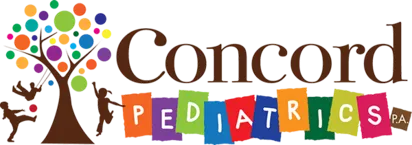Page in progress.
What will we do at this visit?
- Check Weight, Length and Head Circumference and track how your baby is growing.
- Talk about how your family is doing, feeding your baby, sleep, and safety.
- Answer any questions you have!
- Help your child stay healthy by keeping them up to date with their immunizations.
- Lead test - we will do a finger poke in the office to test your child for lead exposure. Read more about Lead Poisoning Prevention and the importance of screening here.
Will my child need immunizations at this visit?
The recommended immunization schedule protects infants and children by providing immunity early in life, before they come into contact with potentially life-threatening diseases.
View the childhood immunization schedule to see which vaccines your baby needs.
Please note that there are age ranges for each vaccine and due to each child's individual medical history, illnesses, missed visits, travel plans, and other factors, your child may need a vaccine early, or to catch-up on missed vaccines at any age! You will discuss any needed immunizations at the time of your visit.
Feeding your baby:
- Offer your baby a variety of foods and nutrients at each meal. Picture "My Plate" for meals and even snacks (though you don't have to separate everything out, and you do not need a separate dairy serving - dairy is a protein source).
- Avoid small, hard foods that can cause choking - nuts, popcorn, hot dogs, grapes, and hard, raw veggies.
- After your baby is 12 months old, it is safe for them to drink water or cow's milk. Milk intake should be less than 24 ounces per day. Juice, soda, or large amounts of milk alternatives (soy, rice, oat, pea) are not advised. Continue breastfeeding as long as you and your baby want to.
- Unless your baby has certain medical restrictions (talk with your Pediatrician), you can introduce peanut butter, tree nut butters, soy, wheat, egg, fish, shellfish, and dairy (yogurt, cheese) foods. Starting early can reduce their risk of developing an allergy.
Your Child's Sleep:
Some babies sleep better than others. Lack of sleep can be one of the more challenging aspects of parenting. Take a look at our Sleep Resources page for information on typical sleep patterns, strategies, and reassurance.
Health and Safety Tips:
- Place gates on stairs.
- Watch over baby as they explore your home or outdoors.
- Watch out for "tip over" injuries when a baby pulls on furniture or cords and objects fall over/onto baby. Check out Anchor It for more information.
- It is critical to learn about Drowning Prevention. Please read Drowning Prevention for Curious Toddlers: What Parents Need to Know.
- Consider taking a Basic First Aid Course that includes CPR. Check for class offerings at your local Community Center or Hospital.
- Avoid screen time including background TV.
- Keep your home and car smoke free.
- Use a rear facing car safety seat in the back seat of the vehicle. Visit Be Seat Smart for more car seat information.
- Know how to call Poison Help (1-800-222-1222) if you worry your baby has eaten, touched, or inhaled something harmful.
Important Milestones: Your Baby By Twelve Months
Track your baby's milestones with the CDC.
Ages & Stages - Baby
Read age-specific articles about your Baby's health, development, and safety at healthychildren.org.
Activities to do with your Baby:
- Look at and read books together.
- Sing songs together.
- Find information on Early Learning and Well-being, Early Learning, and Parenting on zerotothree.org.
